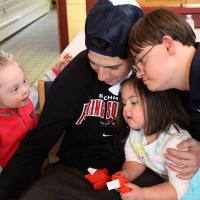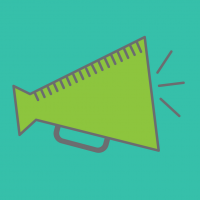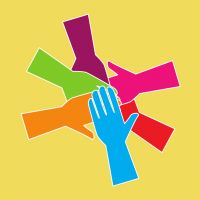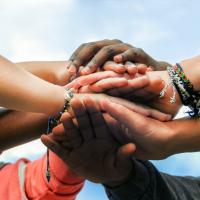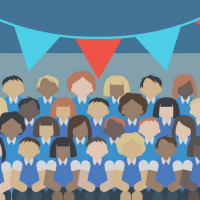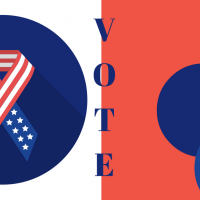Every person has individual traits that make them unique and who they are. People with neurological or physical differences have often been seen as less capable or received services that separated them from others. Society is enriched when it embraces our differences as gifts and characteristics to understand and respect. Awareness can change attitudes, laws, and opportunities. Each young person has a voice, heart, and hands to take big and small actions to help us create a more inclusive world.
Students design a plan to make themselves and their school community healthier. They brainstorm what it means to get moving and exercise, and they see that increasing physical fitness activity is good for everyone and brings a community together. Students will choose or design a service project to encourage schoolmates and the community to increase their daily fitness activity.
- Read more about Get Moving!
- Log in or register to post comments
Students explore the components of the Preamble of the U.S. Constitution and apply them to their own lives, with a particular emphasis on philanthropy. This lesson is designed for Citizenship/Constitution Day (September 17) and connects students to the community-building focus of the Constitution and how it relates personally to their lives and action.
- Read more about What Does the Constitution Say about Philanthropy?
- Log in or register to post comments
This resource guide highlights activities you can do with your students to help them enhance their communication and listening skills.
- This Activity Builds Communication Skills. ...
These activities and games educate, equip, and empower young people to build community, trust, and open communication with others in their community.
Ice breakers:
...
Four Types of Service
Young people who seek to address an issue they care about have many creative opportunities to consider. Exploring these four ways to take action is a starting point for critical thinking. It is important to include the people who are closest to the...
Whether you are in a school, home, faith-based, or community setting, your group can build community through brief check-ins. Check-in meetings may last between 3-15
Children spend time outside to play in nature and recognize the beauty of diverse living things in their environment. Their service project is to share nature with someone else in a creative interaction.
- Read more about The World Outside
- Log in or register to post comments
Learners use visual literacy skills to talk about an artistic image. They listen respectfully to the different opinions and perspectives of their peers. They identify a need in their school or community and create a simple image that tells others to think differently or take action to improve that need.
- Read more about Listening Takes Heart
- Log in or register to post comments
One of the fundamental purposes for education is to prepare youth for responsible citizenship. This includes caring for others and the common good, understanding how government and voting work, following current events, listening to diverse points of view and having civil conversations, and advocating for a cause. This toolkit includes background information and project ideas related to civic participation.
